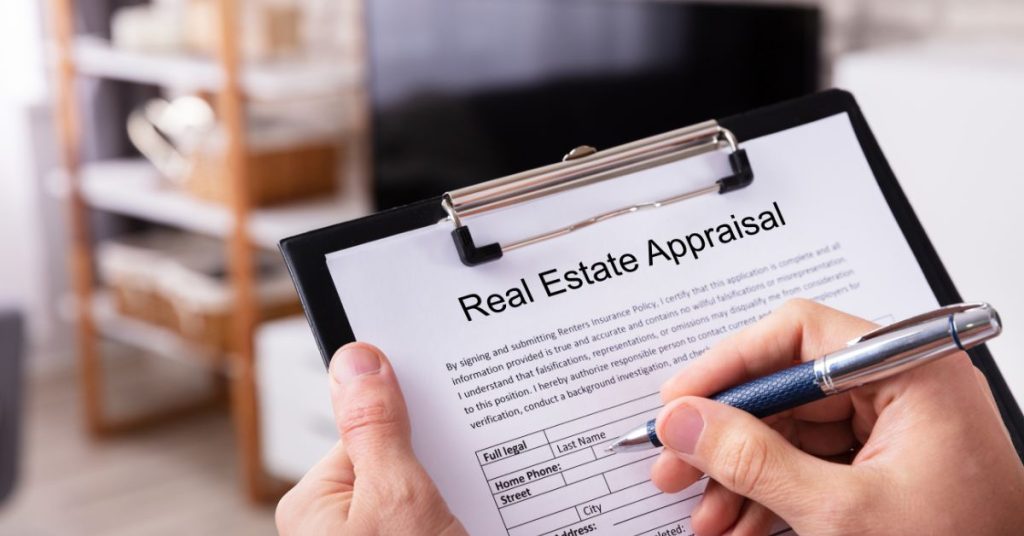The housing market today can get quite competitive. Many Americans want to get their hands on a home and are willing to pay more to ensure they achieve the American dream.
This competitive market is bad news for FHA buyers since they are often deemed unattractive to sellers due to the stricter appraisal and inspection process required for the government-backed loan.
If FHA buyers offer to pay more in hopes to secure their dream home, what happens if the appraised value of the property turns out to be lower? Will the purchase continue? Can you waive the appraisal process in the first place? If you are an FHA loan buyer asking these questions, the answers are in this article.
Waiving Appraisals
FHA loans come with a lot of benefits – especially for those with less-than-stellar financial history. With lower credit scores and down payment requirements, it’s no wonder why it’s a popular loan choice for low to middle-income first-time homebuyers.
Although the FHA loan requirements and qualification process is flexible, the opposite is true when it comes to its appraisals.
What Does an FHA House Appraisal Mean?
A house appraisal is an unbiased evaluation of a property to determine its market value. The appraisal process begins when a buyer and seller agree on a sales price and the seller accepts the buyer’s offer.
Whichever bank or approved FHA lender you find, they will almost always require a home appraisal. This is to ensure that the money loaned will be used solely for the home purchase.
Note that for streamline refinancing, an appraisal is not needed anymore since you already went through the FHA application process.
FHA Home Inspection

With FHA home appraisals, there is also an added home inspection. On top of determining the market value of the home, they will also be checking if the property is in good condition to live in.
The inspector will have a checklist of things to look out for. This includes the property’s structure quality, the interior and exterior condition, possible hazards, and the condition of the lot among others.
If the repairs will cost more than $5,000, the buyer can avail of the FHA 203(k) loan instead. This loan type allows the buyer to roll the expenses of the mortgage and repairs into one loan.
The property must pass the inspection test before the buyer can go through with the loan. Sellers that don’t want to be bothered with completing certain repairs don’t want to accept offers from FHA buyers because of the additional hassle.
So, Can a Buyer Waive the Appraisal?
No, they can’t. It is stipulated in the FHA guidelines that appraisal or inspection contract contingencies cannot be waived.
Waiving Appraisal Contingency

When a bank or approved lender makes a mortgage, their decision will be based on whichever is lower – the purchase price or appraised value of the property.
If a property’s appraisal comes out less than what you offered for it, you will have to pay for the gap out of pocket.
This is where the appraisal contingency comes in.
The appraisal contingency protects the buyer financially. If the appraisal comes out less than what you offered, the contingency allows you the option of backing out without any penalties.
Usually, buyers put an escrow deposit of about 1-3% of the property to show their commitment to purchasing the house. The money will later be used towards paying the loan.
Without the appraisal contingency, you will not get the deposit back and you legally have to go through with the home purchase.
Then why would anyone waive the appraisal contingency when it protects them?
In a hot market, homes are selling fast since the supply can’t match the heavy demand. This benefits sellers since they can have their pick on multiple offers and choose the most attractive one.
In this scenario, some desperate home buyers waive appraisal contingency, showing that they’re willing to take the risk if the appraisal comes out shorter than the contracted purchase price.
If the appraisal of the property comes out shorter than the contracted purchase price, the FHA will not pay for it.
Other than backing out, you have 3 other options:
- Pay the full amount out of pocket. If you want to win a sought-out home, you can pay the gap with your funds. Note that this means you’re paying the house for more than it’s worth.
- The seller will lower the price. You can try to negotiate with the seller to lower the price to meet the appraised value of the home.
- Meet in the middle. You can negotiate with the seller to meet halfway. For example, if there’s a $10,000 gap in the appraised value and the purchase price, you can agree to pay $5,000 more and the seller will agree to lower the price by $5,000.
When to Waive Appraisal Contingency
An appraisal contingency is very important to a buyer to protect them financially in the scenario that the appraised value comes out lower than the selling price. This is why waiving it should come from an educated and well-thought-out decision.
The most common scenario where this decision is made is when there’s a “seller’s market” which means more competition in getting the home of your dreams. Waiving your appraisal contingency may make your offer attractive.
But before you do this, consult your real estate agent if this is the only way to secure the property.
The Bottom Line
Appraisals are used by most lenders to assess the amount of loan they will grant to the borrower for the purchase of the property. FHA appraisals are stricter since it covers an additional home inspection that must meet the health and safety guidelines. These appraisals are necessary for FHA loans and generally cannot be waived.
If the appraised value comes out lower than the selling price, a buyer can either pay the gap out of pocket, negotiate with the seller to lower the property price or meet in the middle. The buyer can also walk away from the deal given that they have the appraisal contingency that allows the borrower to back out with no penalties.
Still have more questions? Don’t hesitate to get in touch with us so we can help!
Frequently Asked Questions
Can you get an FHA loan for more than the appraisal?
No, you cannot get an FHA loan that is more than the appraisal. The FHA will base their loan either on the appraised value of the property or the selling price – whichever is lower.
What happens if an FHA appraisal fails?
If a property is not able to meet the FHA standards, the only solution is to fix them. The appraiser will give the homeowner a list of whatever problems they found, and identify what needs to be fixed.
If the homeowner accomplishes the necessary repairs, the FHA can insure the buyer’s mortgage. But this can take a lot of time, especially if it’s on serious defects.
What would disqualify a house from an FHA loan?
Many contributing factors can play a role in the disqualification of a house from getting insured with an FHA loan.
- Loan limits. Depending on your location and the number of units in your property, the limit of your loan may vary. Take note of these limits when choosing a home to purchase. A high-costing home may not be qualified to be funded with the FHA loan.
- Condition of the property. The lender will make their decision on whether a loan should be approved based on the appraiser and inspector’s assessment of the home’s condition. If it “fails” the inspection and the seller doesn’t agree to fix the necessary repairs, the house will be disqualified for an FHA loan.
- Property type. The most common property type to be rejected by FHA loans is condominiums since they only allow HUD-approved complexes. These complexes must meet HUD standards for financial stability and hazard and liability insurance.
Home appraisal and inspection are used by lenders to find out how much they will lend to you. These are required for FHA loans and thus cannot be waived.






